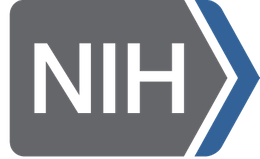Talk to Your Doctor Before Using Natural Remedies
What to ask your doctor when considering an alternative or complementary therapy
Based on content from the NIH publication, “Tell Your Health Care Provider About Your Use of Complementary Health Practices.”
More people are turning to complementary and alternative medicine, or CAM, for their health problems.
Before choosing one of these therapies, which may work well for you, talk to your doctor.
Some alternative approaches can undermine conventional treatments while others can be unsafe for those with certain medical conditions.
Here are some tips for talking to your doctor about CAM:
- Don't wait for your health care providers to ask about your use of CAM. Be proactive and start the conversation.
- Keep a current list of all of your medical conditions and your therapies and treatments, including over-the-counter and prescription medicines and any products such as herbal and dietary supplements that you take. List any complementary or alternative practices you use, such as meditation, acupuncture, or massage therapy. Note any medical specialists or other practitioners you see. Take the list with you whenever you visit a health care provider. Be sure to tell all your health care providers about all of your medical conditions, therapies, and treatments. Also include all medical conditions, therapies, and treatments on any patient history forms you fill out.
- Gather information on the complementary or alternative therapy you're interested in and take the information with you to the doctor's visit.
- Make a list of the things you want to talk about. For example, if you're considering taking an herbal supplement, you might include:
◦ Why I want to take the supplement
◦ How I found out about it
◦ Is it safe for me to take?
◦ Can it cause problems for me because of my medical conditions?
◦ Will it interact with any of my medications?
◦ Is it likely to help me?
◦ What else should I know about it? Where can I find reliable information?
◦ Should I try this? If not, why not? Might something else be better?
- Take a notepad or recording device with you. Listen carefully and keep a record of what you find out. You may want to ask a family member or friend to accompany you, so you can compare notes after your visit.
- If something is unclear to you, or if you want more information, don't be afraid to ask. Your health care providers may not be able to answer every question, but they can help you find the answers.
More:
How to find and alternative medicine provider

The National Institutes of Health, a part of the U.S. Department of Health and Human Services, is the nation's medical research agency — making important discoveries that improve health and save lives. NIH is the largest single source of financing for medical research in the world, seeking new ways to cure disease, alleviate suffering and prevent illness. By providing the evidence base for health decisions by individuals and their clinicians, NIH is empowering Americans to embrace healthy living through informed decision-making. NIH is made up of 27 institutes and centers, each with a specific research agenda, focusing on stages of life, like aging or child health, or particular diseases or body systems.

